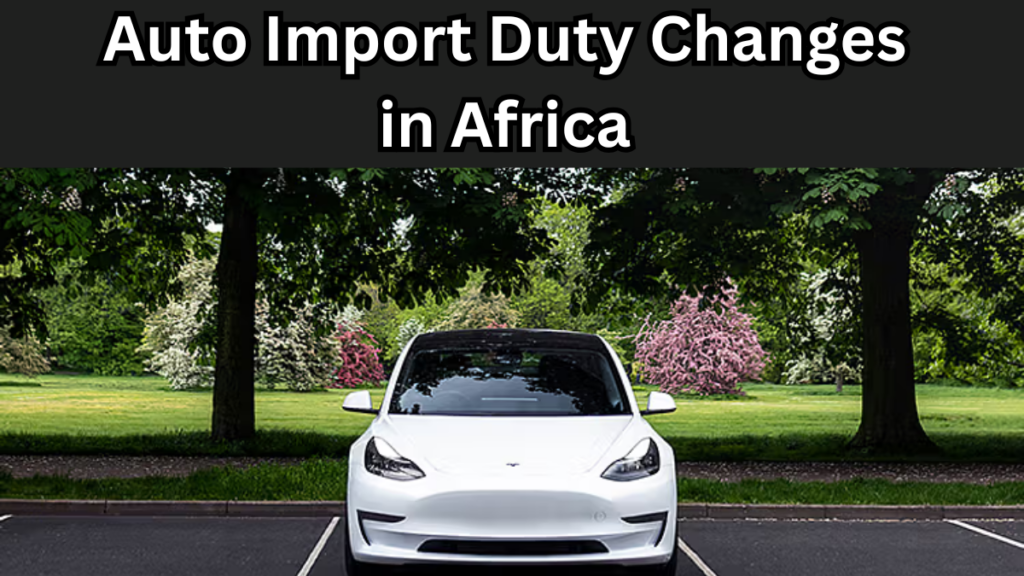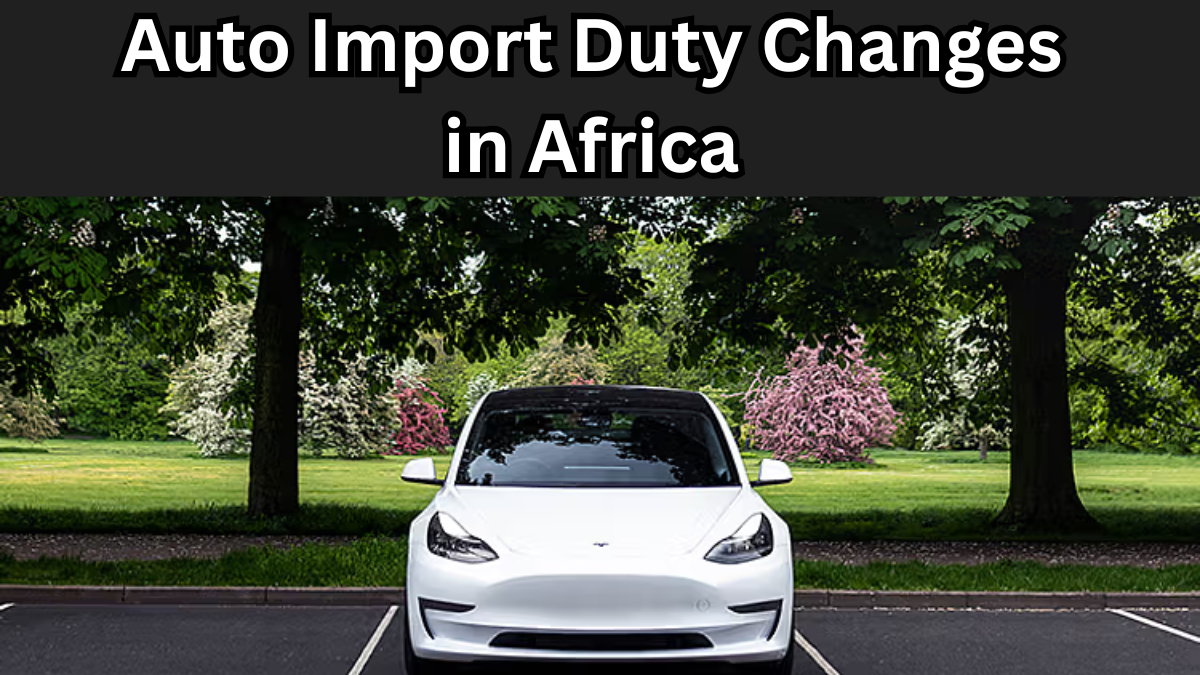As Africa continues to shape its future in mobility and trade, significant changes in auto import duties are set to take effect in September 2025. These policy shifts aim to strike a balance between supporting local automobile manufacturing and making imported vehicles more accessible.
If you’re planning to buy, import, or sell vehicles across African borders, this update could impact your decisions in the months ahead.

Why Are Auto Import Duties Changing?
Governments across the continent are rethinking their car import regulations to:
-
Encourage local manufacturing and assembly
-
Reduce environmental impact by discouraging old vehicle imports
-
Align tax structures with broader trade agreements like AfCFTA (African Continental Free Trade Area)
Key Changes Coming in September 2025
Here’s a quick look at the most anticipated changes in Africa auto import duties 2025:
| Country | Old Import Duty (%) | New Duty from Sept 2025 (%) | Key Focus Area |
|---|---|---|---|
| Nigeria | 35% | 20% | Encourage local auto assembly |
| Kenya | 25% | 30% | Discourage old vehicle imports |
| South Africa | Varies (15-25%) | Uniform 20% | Streamline under AfCFTA regulations |
| Ghana | 30% | 15% | Incentivize newer, low-emission vehicles |
| Tanzania | 25% | 35% | Boost local manufacturing initiatives |
Who Will Be Affected?
These changes in car import regulation will directly affect:
-
Importers of used and new cars
-
Car dealerships sourcing vehicles internationally
-
Consumers, especially middle-class buyers depending on used imports
-
Local auto manufacturers and assemblers aiming to grow their market share
The Bigger Picture – Economic and Environmental Impacts
Expect to see broader impacts such as:
-
Shift toward cleaner, newer vehicles as older cars face higher tariffs
-
Job creation in domestic assembly plants and related industries
-
Reduction in foreign exchange outflows due to fewer imports
Governments are also keen to enforce stricter car import regulations on emissions and safety to align with sustainable goals.
Tips for Importers and Buyers
If you’re in the car business or planning a vehicle purchase in Africa, keep these in mind:
-
Review new tariff structures before placing import orders
-
Check vehicle age and emission standards that may now influence clearance
-
Explore locally assembled alternatives, which might now be more cost-effective
-
Stay updated through government trade websites and automotive associations
FAQs
What are the new Africa auto import duties 2025 rates?
The new rates vary by country but typically range from 15% to 35%, depending on the government’s focus—be it local manufacturing or emissions control.
Why is there a focus on car import regulation now?
To protect local industries, improve air quality, and reduce reliance on old imported vehicles that often don’t meet safety or emission standards.
Will used cars be more expensive after September 2025?
Yes, especially in countries like Tanzania and Kenya, where higher duties will specifically target older vehicle models.
Are any exemptions expected for electric or hybrid vehicles?
Yes, some countries like Ghana and South Africa are introducing reduced duties or full exemptions for electric vehicles to promote green mobility.
Final Thoughts
Whether you’re a car importer, dealer, or buyer, September 2025 is a pivotal month. These changes in Africa auto import duties 2025 could shape vehicle prices and availability across the continent.
Staying ahead of the curve by understanding the latest car import regulations will help ensure informed, cost-effective decisions.
Click here to learn more
Sachin is a dedicated writer specializing in education, career, and recruitment topics, delivering clear and actionable insights to empower readers.
